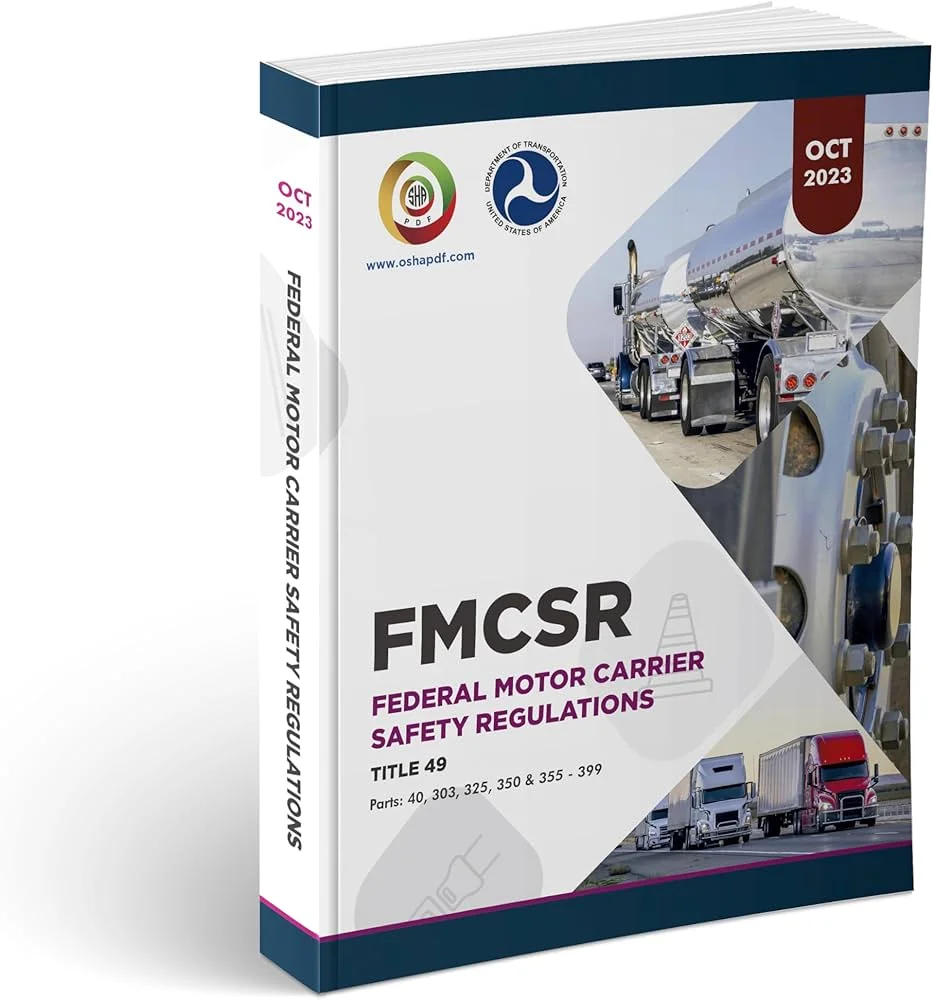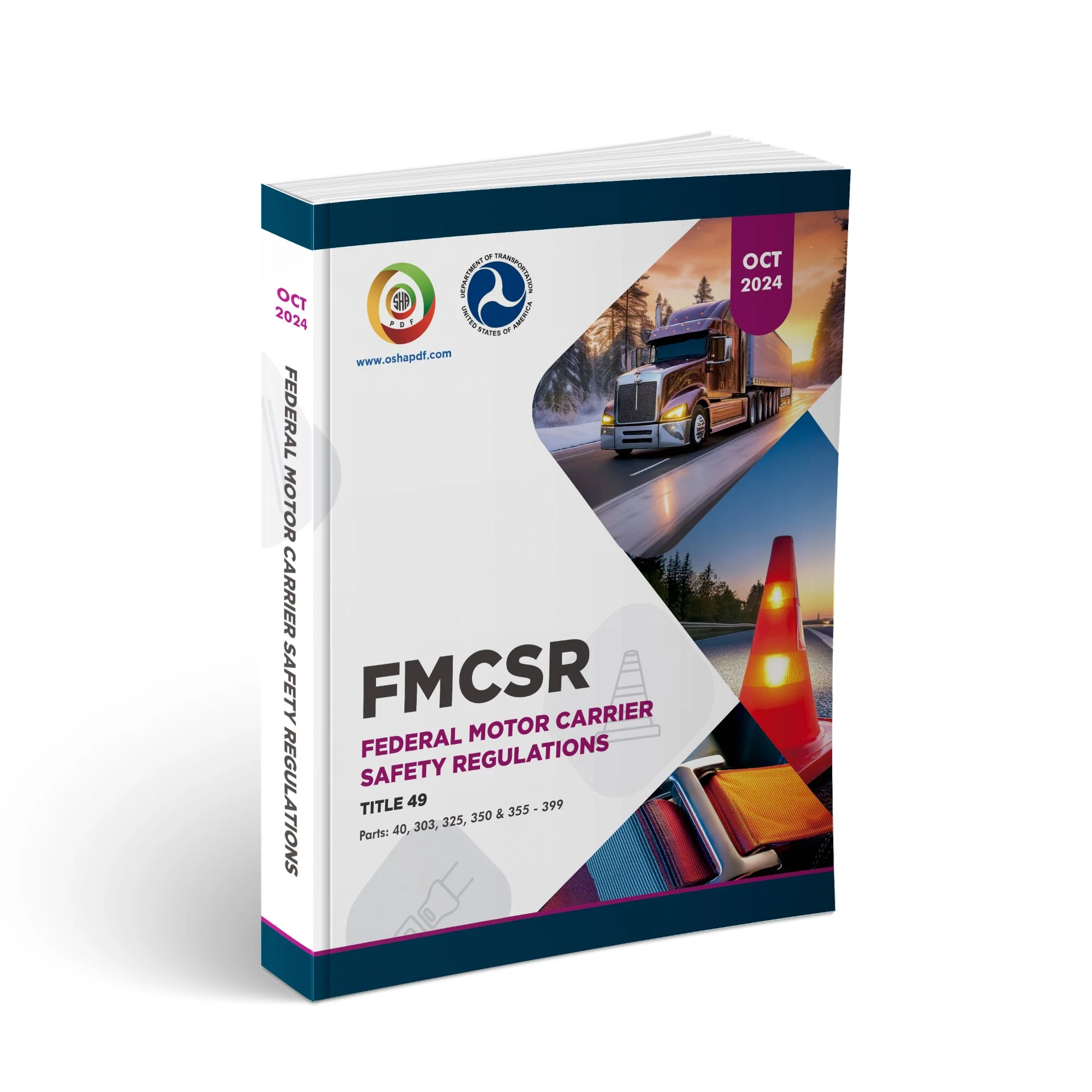In the intricate world of commercial trucking, where safety and compliance are paramount, understanding the Federal Motor Carrier Safety Administration's (FMCSA) regulations is crucial for success. These regulations, often intertwined with the broader Department of Transportation (DOT) rules, form the backbone of the trucking industry, ensuring the safe and efficient movement of goods and people across the nation's highways.
At EasyWayPro, we recognize that deciphering these complex regulations can be a daunting task. That's why we've created this comprehensive guide to demystify FMCSA regulations, empowering trucking companies and drivers with the knowledge they need to stay compliant and thrive in this dynamic industry.
FMCSA Laws:
The Legal Framework for Safety
The FMCSA's authority to regulate the trucking industry stems from federal laws enacted by Congress. These laws grant the FMCSA the power to establish and enforce regulations aimed at minimizing risks, preventing accidents, and fostering a culture of safety.
Key FMCSA laws that underpin the regulatory framework include:

The Motor Carrier Act of 1980:
This landmark legislation deregulated the trucking industry, fostering competition and efficiency. However, it also underscored the importance of safety and granted the DOT the authority to establish and enforce safety regulations for motor carriers.
The Motor Carrier Safety Improvement Act of 1999:
This act strengthened the FMCSA's regulatory power and mandated the creation of the Compliance, Safety, Accountability (CSA) program to assess carrier safety performance.
Moving Ahead for Progress in the 21st Century Act (MAP-21):
Enacted in 2012, MAP-21 further bolstered the FMCSA's enforcement capabilities and ushered in new safety technologies like Electronic Logging Devices (ELDs).
FMCSA Regulations for Truck Drivers: The Human Element of Safety
Truck drivers are the backbone of the industry, and their adherence to FMCSA regulations is paramount for ensuring road safety. These regulations govern various aspects of their professional lives:
Commercial Driver's License (CDL):
Obtaining and maintaining a valid CDL with appropriate endorsements is mandatory for operating commercial vehicles.
Medical Certification:
Regular medical examinations and certifications validate a driver's physical and mental fitness to operate a CMV safely.
Hours of Service (HOS):
Strict limits on driving hours and mandatory rest breaks combat driver fatigue, a major contributor to accidents.
Drug and Alcohol Testing:
Comprehensive testing programs ensure a drug- and alcohol-free workforce, promoting safety for all road users.
ELD Mandate
Electronic Logging Devices (ELDs) accurately track HOS and duty status, enhancing compliance and transparency.
Driver Vehicle Inspection Reports (DVIRs):
Thorough pre-and post-trip inspections, with detailed documentation of any defects, are essential for identifying and addressing potential safety hazards.
FMCSA Standards: The Benchmark for Safety and Compliance
Beyond individual regulations, the FMCSA sets performance standards for motor carriers through the CSA program. These standards evaluate a carrier's safety performance in critical areas like unsafe driving, crash history, HOS compliance, vehicle maintenance, and hazardous materials handling.
Carriers with subpar CSA scores may face increased scrutiny, potential interventions, and even penalties. Maintaining high safety standards is not just about compliance; it's about safeguarding your reputation and ensuring the well-being of your drivers and the public.
What Does "FMCSA Regulated" Mean?
If your trucking company engages in interstate commerce, transporting passengers or property across state lines, you fall under the FMCSA's jurisdiction and must adhere to its regulations.
Being "FMCSA regulated" entails several key obligations:
Obtaining and Maintaining Operating Authority:
Applying for and securing the appropriate operating authority (MC number) is essential for legal operation.
Adhering to FMCSRs:
Complying with all applicable safety regulations, encompassing driver qualifications, vehicle maintenance, HOS, and more.
Participating in the CSA Program:
Your safety performance will be monitored and assessed through the CSA program, influencing your safety rating.
Subject to FMCSA Enforcement:
You may face audits, investigations, and potential penalties for non-compliance.
EasyWayPro: Your Partner in Compliance
Navigating the intricate maze of DOT and FMCSA regulations can be overwhelming. EasyWayPro's team of seasoned professionals is dedicated to simplifying the process and ensuring your trucking business thrives within the regulatory framework. We offer comprehensive consulting services and innovative TMS solutions to streamline your compliance efforts, enhance safety, and optimize your operations.
Conclusion
DOT and FMCSA regulations form the bedrock of safety and compliance in the trucking industry. Understanding and adhering to these regulations is not just a legal obligation; it's an investment in the well-being of your drivers, the protection of the public, and the long-term success of your business.
Contact EasyWayPro today to learn how we can help you navigate the regulatory landscape with confidence and achieve operational excellence.

